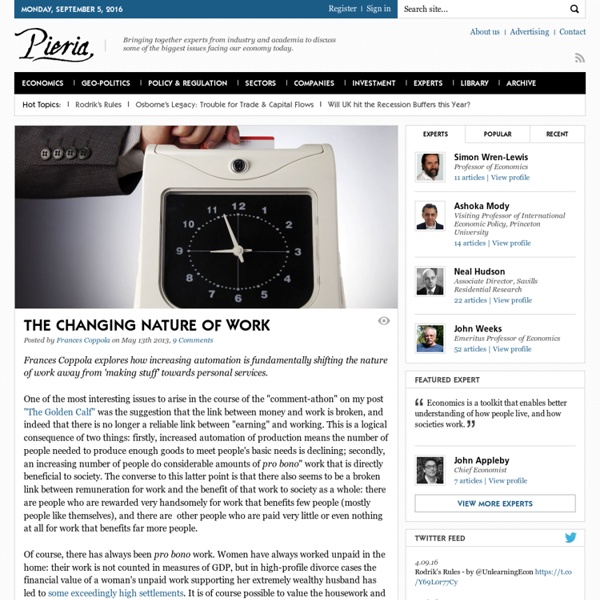The changing nature of work

Viewpoint: Gartner on the changing nature of work
10 February 2012Last updated at 00:04 By Tom Austin Vice president, Gartner Hive mind: Working around the clock in hyper-connected 'swarms' - is this the future of work? As part of our Future of Work series running throughout February, we asked some experts to give us their take on how the way we work is going to change. Tom Austin, vice president at Gartner, has been a Gartner Fellow for a decade. If you were to sit down today and create a company completely from scratch, would you copy the processes, practices and structures of today's organisations, or would you try to do something different? Of course, I ask this knowing that the world of work has changed dramatically in the past 20 years. The changing nature of work means that organisations need to plan ahead for increasingly chaotic environments. There are 10 key ways in which the world of work is changing. The core value that people add does not lie in processes that can be automated. Spontaneity will trump reactivity.
Génération free-lance
XEnvoyer cet article par e-mail Nouveau ! Pas le temps de lire cet article ? Classez le dans vos favoris en cliquant sur l’étoile. Fermer Management Bienvenue dans les nouveaux modes d’emplois, nomades et hybrides Imaginez un monde sans CDI, sans bureaux ni employeur attitrés. Quelle que soit la réponse, aux entreprises, désormais, d’inventer le management qui va avec. “ Ils sont mobiles, connectés, autonomes, réactifs. Perceptible depuis une dizaine d’années déjà, le changement s’affiche depuis peu dans les attentes des entreprises, dans l’évolution des comportements des salariés et jusque dans les préconisations de certains politiques ; à commencer par celles du président du Conseil italien Mario Monti qui, après avoir récemment qualifié le CDI “d’ennuyeux” pour les salariés et de “décourageant” pour les entreprises, exhortait les jeunes à “se faire à l’idée de ne pas avoir un emploi fixe à vie” et à la nécessité de “changer souvent de lieu ou de type de travail”. Réguler l’activité.
Related:
Related:




"If people are intrinsically of value, then they have the right to survive with or without working".... by noosquest May 14